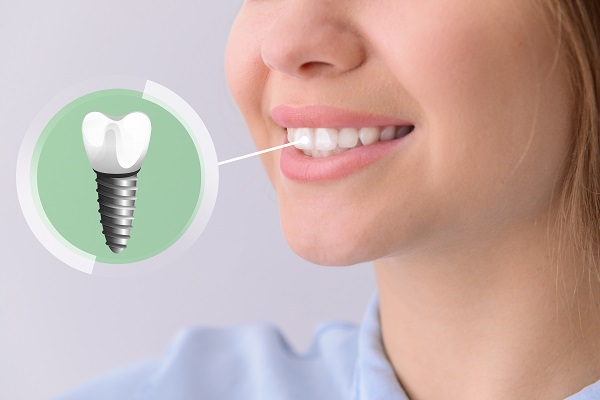Dental implant placement requires a period of recovery. Understanding the expected amount of time that it takes to recover and learning useful tips on how to help your mouth heal faster are certainly helpful when preparing mentally and physically for the dental implant placement and aftercare process.
How dental implant placement and aftercare works
Dental implants are placed into the jaw through a minor surgical procedure. The patient does not feel anything during the procedure due to anesthesia, but being able to manage the discomfort, prevent infection and ensure that the implant can properly fuse with the jaw are essential. The following is a review of dental implant placement and what to expect during and after the placement procedure.
A review of dental implants
A dental implant is a metal post that is placed into the jawbone beneath or below a missing tooth (or multiple missing teeth). They serve as an anchor or root for a replacement tooth, which is typically a crown for single tooth replacement. They are non-removable (unlike dentures) and last much longer than dentures or fixed bridges on average. They also offer exceptional functionality benefits, allowing the patient to eat how they desire. Patients can also care for their dental implants the same way as they would natural teeth.
What to expect during implant placement
Before implant placement, the patient may require a bone graft procedure. This ensures that there is enough bone in the jaw to support the implant. Once the mouth is ready, the implant placement procedure is scheduled. This procedure involves making an incision into the gums, drilling a small hole into the jawbone and placing the dental implant post into the jaw. Once the mouth heals, the abutment and replacement tooth are placed.
What to expect after implant placement
The patient does not feel anything during the procedure, but there is typically pain, swelling, minor bleeding and soreness after implant placement. The patient can manage the pain through pain relief medication, eating a soft diet and practicing good oral hygiene. It typically takes between seven and 10 days for the mouth to heal, and the patient can return to normal activity afterward. The implant must go through osseointegration, which refers to the process of the implant fusing together with the jawbone. This takes anywhere from two to six months.
Tips for making the implant heal faster
As mentioned, pain relief medication (anti-inflammatory), a soft diet and good oral hygiene can speed up the recovery process. It is also encouraged to avoid activities that may result in a blow to the face and subsequently damage the implant or affected area. Patients should also make a strong effort to make all scheduled follow-up visits without rescheduling.
Talk to a licensed dental implant dentist today
Our dental team helps patients through the dental implant placement process, ensuring that they are comfortable and have all their questions answered along the way. Call us or send us an email today to get the treatment process started.
Request an appointment here: https://drsykes.com or call Robert S. Sykes, DDS at (770) 873-7241 for an appointment in our Marietta office.
Check out what others are saying about our dental services on Yelp: Dental Implants in Marietta, GA.
Related Posts
Is it Painful to Get a Tooth Implant?
Tooth implants have become a popular replacement option for individuals with missing teeth. Also known as dental implants, this replacement option is one that requires a semi-invasive oral surgery. The term oral …
How Soon Can You Get Tooth Implants After Extraction?
If you are undergoing a tooth extraction, you will probably want to replace the tooth as soon as possible with an option like tooth implants. After all, a missing tooth affects the …
How Is a Dental Implant Placed?
The placement of dental implants is an intricate process involving the insertion of titanium posts into the jawbone. The posts mimic the functions of the natural tooth roots by fusing to the …
Life After Dental Implants
Dental implants can improve your oral health and appearance. There are many benefits to choosing this tooth-replacement method. Of course, implants are not the only way you can restore your smile and …






